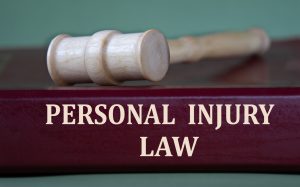Although the idea of filing a lawsuit may seem daunting, educating yourself about what to expect in a typical case will lessen the stress and confusion of the overall process. Read on to learn more about the typical stages of a personal injury lawsuit.
Consulting a Personal Injury Attorney
After receiving the appropriate medical attention for your injuries, you should schedule a consultation with a personal injury lawyer. During your meeting, they will assess whether or not they believe you have the legal grounds to file a personal injury claim. This assessment will be made based on the supporting documentation you bring with you to your meeting. Therefore, make sure to bring medical records and other forms of supporting documentation you’ve collected concerning the accident. To evaluate whether your attorney is a good fit for you, ask them plenty of questions regarding their experience, track record, and policies on client communication. Prior to hiring, carefully read through the fine print of your contract and question your attorney about their fees.
Investigating Claims and Medical Records
Once you hire an attorney, they’re responsible for researching the specifics of your case. The first thing they’ll do is interview you about (1) the nature of the accident and (2) the full extent of your injuries and medical costs. During this stage, your attorney will ask you to collect and provide them with all records and bills relevant to the injuries you’ve sustained from the accident.
Making Demands Prior to Filing a Lawsuit
If your attorney believes your case can be settled without filing a lawsuit, they will issue a demand and begin negotiations. The person liable for your injuries is known as the defendant and, at this stage of the claims process, they may present your lawyer with a monetary offer to settle the case. If you are satisfied with the offer, you can accept the settlement and close the case before ever stepping inside a court of law. If you are not satisfied with the offer, your attorney will go ahead and file a lawsuit.
Filing A Personal Injury Lawsuit
In the first stage of filing a lawsuit, your attorney will issue a complaint. A complaint is a legal document served to the defendant stating (1) the nature of your accident, (2) the legal basis you have for holding them liable, and (3) the compensation you want for sustained damages. The defendant must then answer the complaint by either accepting or denying your allegations. The next stage is known as the discovery phase. At this point, each side will gather and exchange evidence, documentation, and claims information. Then, both sides will take sworn testimonies of all parties involved in the accident to support their cases, otherwise known as depositions. During the final stage or motions stage, the defendant has the opportunity to file a motion for summary judgment where a judge will decide whether or not to dismiss the case. Alternatively, your case can be resolved by going into mediation. Mediation is the process whereby both parties attempt to settle a case in the presence of a mediator. However, because the negotiations that occur in this stage are non-binding, either party can accept or reject the offer and pursue the case by trial in civil court.
Trial and Appeals
During a civil trial, each side will first present their opening statements, followed by testimonials and then cross-examinations, before finally finishing with their closing arguments. As the defendant, your attorney will present your side first followed by the defendant. After deliberation, the judge or jury will deliver a verdict determining (1) whether the defendant should be held liable for the damages you’ve suffered and (2) the extent of compensation you deserve. If the court rules in your favor and the other party accepts the decision, you will receive your settlement money. Occasionally, however, the defendant will make an appeal to a higher court hoping to overturn this decision. While most motions for appeal end in failure, you should note that an appeal may delay how quickly you receive your settlement money. Similarly, if the verdict of the case does not rule in your favor, you have the option to file for an appeal.
Filing a lawsuit is, without a doubt, a very complex process. Having an experienced personal injury lawyer by your side to guide you through this process can mean the difference between winning and losing your case. If you live in Fort Lauderdale and are considering filing a personal injury lawsuit, you should schedule a consultation with Your Fight Our Battle to learn more about your legal rights to compensation.




















